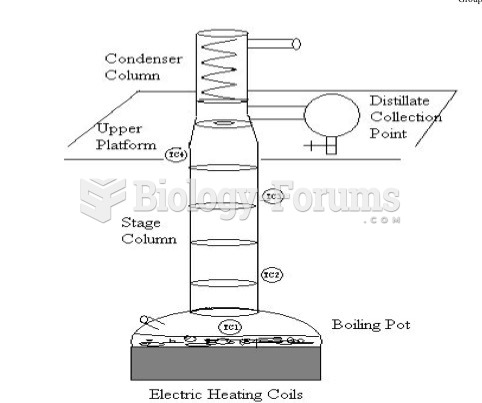|
|
|
Before a vaccine is licensed in the USA, the Food and Drug Administration (FDA) reviews it for safety and effectiveness. The CDC then reviews all studies again, as well as the American Academy of Pediatrics and the American Academy of Family Physicians. Every lot of vaccine is tested before administration to the public, and the FDA regularly inspects vaccine manufacturers' facilities.
People often find it difficult to accept the idea that bacteria can be beneficial and improve health. Lactic acid bacteria are good, and when eaten, these bacteria improve health and increase longevity. These bacteria included in foods such as yogurt.
In most climates, 8 to 10 glasses of water per day is recommended for adults. The best indicator for adequate fluid intake is frequent, clear urination.
Critical care patients are twice as likely to receive the wrong medication. Of these errors, 20% are life-threatening, and 42% require additional life-sustaining treatments.
In the United States, there is a birth every 8 seconds, according to the U.S. Census Bureau's Population Clock.
 Luna Park at Coney Island was a vast living theater in which strollers were both spectators and acto
Luna Park at Coney Island was a vast living theater in which strollers were both spectators and acto
 A typical electric motor-driven AIR pump. This unit is on a Chevrolet Corvette and only works when ...
A typical electric motor-driven AIR pump. This unit is on a Chevrolet Corvette and only works when ...





